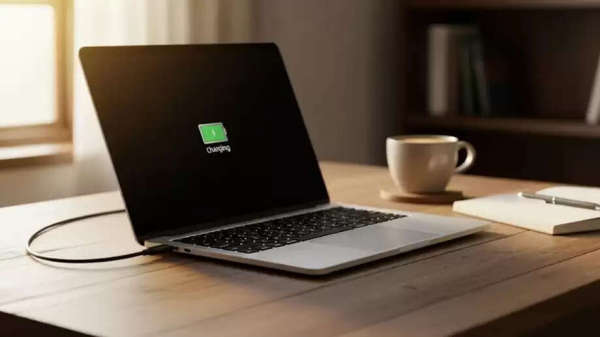
Nowadays, many people leave their laptops constantly plugged in while using them, which has become a common habit. Some even leave them plugged in when not in use. Whether working from home or taking online classes, many people keep their laptops constantly connected to power. The big question is: Is it safe to keep a laptop plugged in all the time, or is this habit slowly reducing battery life?
A recent peer-reviewed study published in the journal Physical Chemistry (Chemical Physics) states that lithium-ion batteries can rapidly lose their life if they are left at a high charge level for a long time and exposed to heat. This means that your charging habits can significantly impact the battery.
Is it safe to keep your laptop plugged in constantly?
Some experts say that advanced laptops today have a smart charging system that stops charging once the battery reaches 100% charge. This system protects the laptop from overcharging. Keeping the laptop plugged in regularly doesn't immediately harm the battery, but you should allow it to discharge for a short period of time. This improves the laptop's battery health.
However, experts also say that keeping the battery at 100% charge for long periods of time gradually reduces its life. This damage isn't visible at first, but after several months, battery health begins to drop.
When is it safe to keep your laptop constantly charging?
If you spend most of your time working at a desk, using heavy software, or on video calls, keeping it on charge is perfectly fine. Just make sure the laptop stays cool and has good ventilation.
Always place the laptop on a flat, hard surface.
Turn on battery conservation mode when using the laptop.
Let the battery discharge slightly after a while.
Disclaimer: This content has been sourced and edited from Dainik Jagran. While we have made modifications for clarity and presentation, the original content belongs to its respective authors and website. We do not claim ownership of the content.
-
James Martin says 'go out and buy it now' for gravy 'like chefs make in restaurants

-
Rajinikanth Marks 50 Years in Cinema; Times Honors Him With a Special Front-Page Tribute

-
Madhuri Dixit's Cryptic 'Maar Daala' Post With Bloody Knife Icon Sparks Concern Among Fans

-
Railways: Indian Railways' new initiative: Passengers will get infection-free air in train coaches..

-
Courts cannot fix timeline for governor, Prez to give assent to bills passed by assembly: SC
